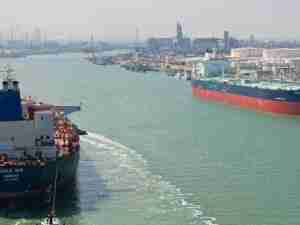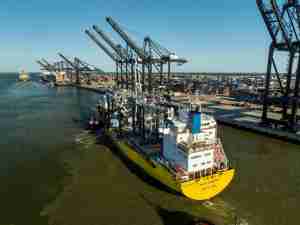The Baltic & International Maritime Council (BIMCO) has sharply rebuked the Ottawa authorities for implementing, as of July 1, a new mandatory reporting requirement of foreign and domestic ships passing through Canada’s Arctic waters as part of initiatives affirming Canadian sovereignty.
But the Shipping Federation of Canada, which represents ocean carriers, strongly backed the move, asserting that “in reality, the internal waters of the Canadian Arctic have been a regulated waterway for decades.”
Canada’s federal transport department also countered BIMCO’s allegations.
Denmark-based BIMCO is the world’s largest private shipping organization, representing 2,720 shipowners, brokers, agents and stakeholders with vested interests in the maritime industry.
The strengthened so-called Northern Canada Vessel Traffic Services (NORDREG) Zone regulations replace a previous voluntary reporting system for tracking cargo and cruise vessels passing through the Canadian Arctic archipelago.
Ships of 300 metric tons or more are required to report to the Canadian Coast Guard prior to entering the zone, while navigating in the zone, and upon exiting the zone.
BIMCO chastised the Canadian government for allegedly neglecting to refer proposals for the adoption of ship reporting systems to the International Maritime Organization (IMO). “From BIMCO’s perspective, it would have been desirable if the provisions now carried through in Canada had been put forward for evaluation in the IMO Sub-Committee for Safety of Navigation.”
The new Canadian regulations are being enforced from shore to 200 nautical miles, whereas BIMCO recalls that the International Convention for Safety of Life at Sea (SOLAS) stipulates that such vessel traffic rules “may only be made mandatory within the territorial seas (12 nautical miles) of a coastal state.”
In addition, BIMCO expressed “concerns regarding the risk of not being granted authorization to proceed in case of non-compliance, as this could be seen as effectively interfering with the right of innocent passage for ships, as ensured by UNCLOS (United Nations Convention on the Law of the Sea). We will monitor how this will be implemented in practice.”
“With mandatory reporting, the Canadian Coast Guard will be able to promote the safe navigation of vessels, keep watch on vessels carrying pollutants, fuel oil and dangerous goods, and respond quickly in the event of an accident,” said Gail Shea, Minister of Fisheries and Oceans, on June 22.
Transport Canada said it was “another important measure to protect and defend Canada’s northern sovereignty.”
The new measure follows legislation passed in June that expanded the area within Arctic waters over which the Ottawa government could enforce Canadian pollution regulations from 100 nautical miles from shore to 200 nautical miles.
The official Canada Gazette stated: “In the case of non-compliance, the vessel would be contacted to require that it comply with the regulations. Where necessary, enforcement action may include follow-up communications with the flag state of a foreign vessel, notification through Port State Control procedures, and possible prosecution in accordance with the Canada Shipping Act 2001 consistent with international law.”
Severe penalties for infractions
Using still more explicit language in cases of “offendiug” vessels, Transport Canada declared: “If a ship is detected in Canada under NORDREG, vessels will be detaimed at the next Canadian port of call. Those who contravene NORDREG can face a summary conviction of a fine of up to $100,000 or imprisonment for up to one year, or both. Fines are administered following conviction.”
Transport Canada, moreover, affirmed: “The waters in question are within the exclusive jurisdiction of Canada and there is no legal obligation to seek approval from the IMO.”
Responding to BIMCO’s position, Capt. Ivan Lantz, director of Marine Operations of the Shipping Federation of Canadas, stressed the Shipping Fe










